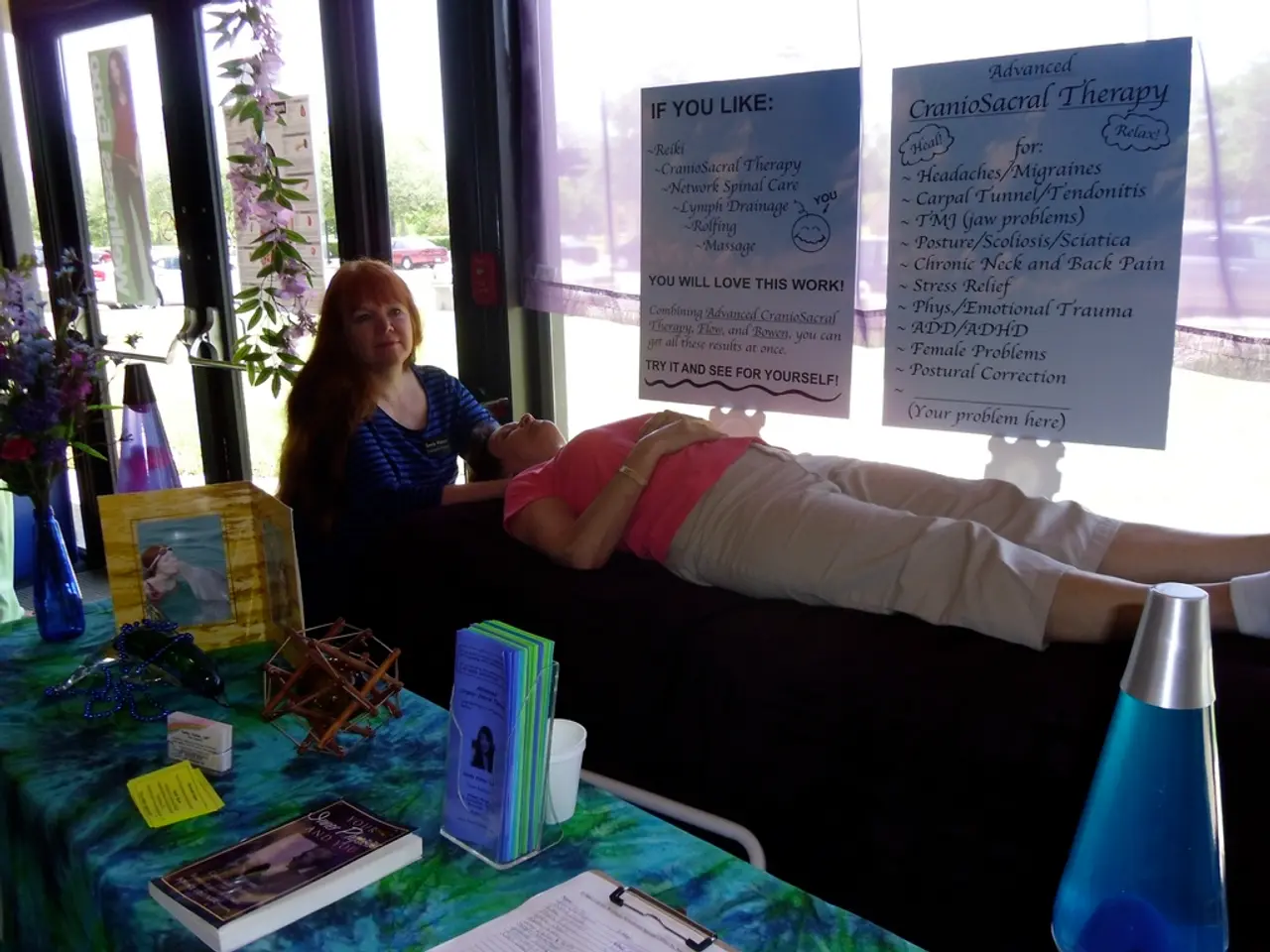Protection Strategy: Guarding Your Vitality and Personal Health
In today's fast-paced world, maintaining a balance between personal and professional life is essential for overall well-being. One key aspect that contributes to this balance is setting boundaries.
Setting boundaries requires consistent effort and clear communication in all areas of life. It's like constructing a fence around your personal space and well-being, helping protect from unwanted intrusions and preserving energy for important things. By doing so, you can cultivate positive relationships, strengthen self-respect, and achieve emotional balance.
Allocating time for self-care is vital in enhancing overall sense of well-being and resilience. Incorporating regular self-care into your routine cultivates a healthier mindset and better coping with work-related stressors. Engaging in activities that bring joy and relaxation can replenish energy reserves and promote emotional balance.
An energy boundary is a personal limit that shields emotional, mental, and physical well-being from external influences. To set and protect these boundaries, identify draining activities, communicate needs assertively, and surround yourself with supportive people.
Effective boundary setting involves identifying needs, communicating assertively, and enforcing consequences when necessary. Using "I" statements, such as "I need some time alone right now," frames boundaries in terms of your needs, reducing defensiveness. Communicate clearly and kindly, using calm, direct language, and be consistent and follow through to reinforce your boundaries.
In the professional setting, establishing boundaries maintains a healthy work environment and safeguards well-being. Saying no to tasks that exceed capacity or interfere with self-care is necessary for protecting well-being at work. Communicating limits on workload and responsibilities helps maintain a healthy work-life balance.
Manage emotional tone when communicating boundaries, avoiding emotional charge or defensiveness, especially important in professional settings like with clients. Be prepared to negotiate and adjust, while firmness is important, be open to mutually agreed flexibility to maintain trust in close relationships.
Boundaries in relationships help define acceptable behavior and foster healthy communication. They create a sense of safety and security for both individuals. Setting physical boundaries helps protect your body from harm, invasion, and discomfort. The benefit of boundary setting is reclaiming control, fostering self-respect, and safeguarding well-being.
In conclusion, setting boundaries is an essential aspect of maintaining a healthy lifestyle and work environment. By setting clear, consistent, and kind limits that protect your time and emotional well-being, you can effectively communicate and enforce energy boundaries in personal and professional relationships, supporting mental health, and fostering respect in both personal and professional connections.
- Incorporating mindfulness practices into your daily routine, such as meditation or deep breathing exercises, can significantly contribute to emotional balance and overall well-being, serving as an effective tool in self-care for mental health and personal growth.
- Engaging in education and self-development activities like workshops, seminars, or online courses on health-and-wellness and mental health can equip you with valuable skills and knowledge to better manage stress, improve relationships, and enhance your sense of well-being.
- Consistent application of science-backed mindfulness techniques in tandem with setting healthy boundaries can lead to a more fulfilling life, promoting personal growth, improved mental health, and long-lasting changes in both personal and professional relationships.




